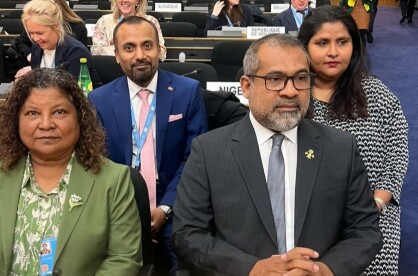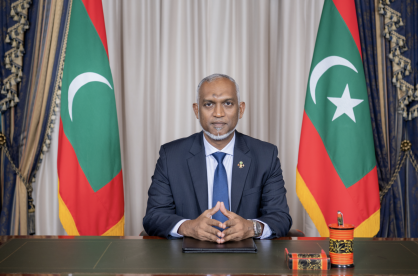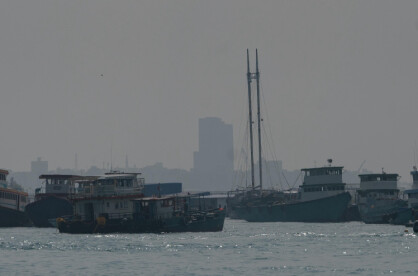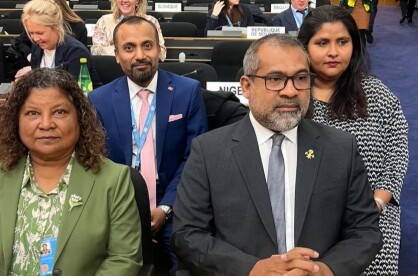With the announcement of further extending the powers of the enforcing authority, there is cause for concern. Around the world, news is abundant of un-democratic evolutions to law enforcement, where the privacy of the individual is disregarded, where the due process of the law is at the whim of the politicised ‘independent’ government institutions, and it is right to be concerned at the changes the Maldives may be going through as well.
However, upon closer inspection of the fine print, there seems to be certain, very key aspects that some may have missed.
The announcement to the changes in bylaws in regards of the use of specialised methods of surveillance for investigative purposes by the Maldives Police Service is published in the Gazette publication, 2021/R-116. While the blanket claim that the use of secretive surveillance devices in the homes and aboard vessels of the suspected person is still true, this regulation was not formulated carelessly. Care was taken to derive similar bylaws from comparative democracies around the world, and there is a certain amount of stress placed on this point in the bylaws as well.
The key takeaways from the announcement are as follows:
- The methods of surveillance are clearly defined, from direct to discreet to intrusive investigation.
- To commence such a surveillance operation, the investigating officer needs to file a properly defined application with extensive explanations of the suspected offence, case number and case details, and then the expected result of said surveillance, the timeline for it, to the commissioner or assistant commissioner.
- Section 8 clearly establishes that the request needs to be endorsed by a court warrant, which is a key point that was missed out in the news report. This means this extension of power won’t be without check and balance.
- An overseeing committee needs to be established before the commencement of this law. Upon the filing of a complaint, the overseeing committee can both demand a stop to investigations as well as take steps in accordance to internal affairs bylaws against the investigating officer, the approver, and the one who provided the devices for surveillance, who are expected to be present for questioning within 72 hours of a complaint being filed. The power to take steps implies punishments for misuse of this power, another check and balance.
- The extensive approval process ensures (on paper at least) that such surveillance is not going to be as common or invasive as a Police State surveillance seen in the more restrictive communities elsewhere in the world.
By defining the methods of surveillance, it is allowing the public to have a sense of awareness of what to expect. The approval process, as mentioned above, ensures that without strong suspicion of a wrong-doing, the investigators would not go through the extensive process of requesting approval and the court warrant to commence the investigation.
The requirement of a court warrant also draws a line between the executive and the judiciary; the separation of powers fosters checks and balances between them, and this is a key aspect of it. The lack of clarification upon what level of a judge or judicial official can hand out the warrant implies that magistrates can also approve such an investigation, which is counterpoint to this argument.
While the gazette publication does not describe who would be on the overseeing committee, it is based on the Police Service bylaws, article 106 which describes a three member committee involving the Commissioner of Police, Prosecutor General, and the Attorney General. However, there is cause for concern given how these appointments are quite politically charged, changing with each administration or halfway through the term in certain cases, and it could be expected that the parliament would step into create a structure that is both impartial as well as accountable. Even if the track-record of the incumbent parliament leaves much to desired in the sense of accountability, at the very least the framework allows for those of better standing to be able to do the right thing to ensure the rights of the people are not infringed upon.
However, it is actually the frailty of said accountability that creates cause for concern. The people have been constantly seeing how laws seem to warp and bend when parliamentary representatives and their family members are seen to be involved in deplorable acts, or how rulings tend to bend over backwards against political opponents. This new bylaw, while structured with little to the imagination, is still in danger of being misused, regardless of the many checks and balances.
With the JSC conundrum still unattended, and the suspiciously total control of the President over the parliament majority, and the many high profile cases being left gathering dust in the archives, those in power right now have not done enough to regain the total trust of the public in terms of fairness and accountability. While three high profile murders over the last decade can be left unsolved, is an extension of police investigative powers really the answer?
The argument of trying to shift the attention from ‘dishonest, bad people’ to ‘structurally flawed system’ is gaining traction, and this new bylaw is one of many steps that need to be taken to address the short-comings of the Maldivian governing system.







